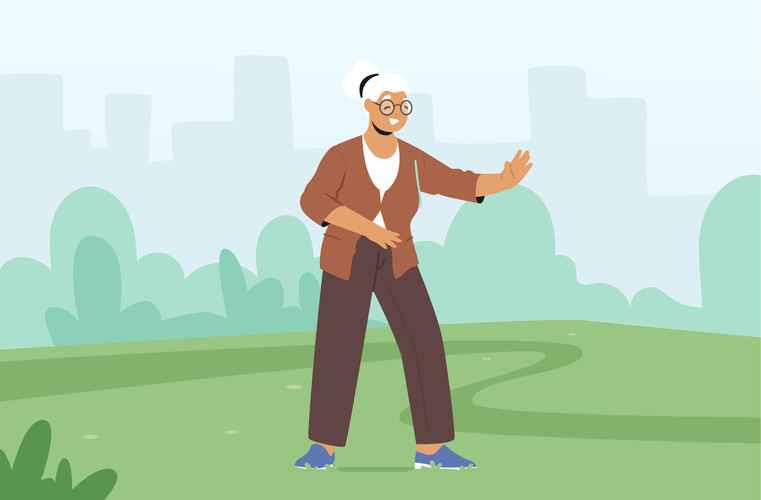MIND & BODY AFTER 50
Your body and mind are one!
First, an explanation:
When you have a worrying, anxious mind, your body is anxious too. Your mind and body affect each other, moment by moment. Your body experiences your emotions, but it influences your emotions too.
This dynamic interplay between mind and body is a crucial new understanding of modern psychology. We now realize that being aware of your body can help you to rebalance your emotional life -- even help you to overcome the psychological legacy of trauma!
And science shows the …
New study of anxiety & mindfulness
Greetings Ladies!
Do you take psychiatric medications?
Modern psychiatry is reevaluating its use of psychiatric medication — especially medications used for problems of mood & emotion.
New studies are raising a big question: Has medicine been over-prescribing psychiatric medications?
Patients often take such medications for years, and side-effects are common and sometimes long-lasting.
Studies show that non-pharmaceutical approaches can sometimes be just as effective as drugs — but with …
Related Positive Mind-states
Optimism is part of ‘mind-body’ medicine. Research shows optimism is a mind-state that can directly affect both physical and psychological well-being. For example, a doctor could rightly encourage her patient to develop a more optimistic attitude to protect the health of her heart -- or to extend her longevity.
Here’s a 2021 study that has more good news about optimism. It also shows that optimism is linked to mindfulness!
In 2020/21, psychologists from a Dutch university interviewed 569 onl…
Does 'greenness' support better health?
Some years ago, a woman told me the secret of how she healed her depression. She said she'd improved her mood by caring for her houseplants! I remember her saying “I love my plants. They inspire me. They want to live!”
Her doctor had wanted to prescribe antidepressant medication, but somehow this lady had discovered her own unique path to healing — caring for her plants. Eventually I lost touch with her, but as far as I know, she never did require medication. She had become an indoor garden…
Not exercise!
People who aren't familiar with yoga or qigong often think these are types of 'exercise' — activities for people who intend to improve or train their body.
For example, people might exercise to get good at a physical skill, or they exercise to develop a strong body, or they want to be more physically attractive. So they exercise.
The exercise attitude has come down to us from the athleticism of ancient Greece (think the Olympics!). The exercise attitude dominates the modern world with its …
What about sleeping pills?
People should avoid using most types of ‘sleeping pill’ for any longer than 3-4 weeks. Sleep medications should be temporary.
That’s the standard instruction for best medical practice in most of Europe and North America. Official medical treatment guidelines recommend limited use only.
But, in reality, doctors and patients usually ignore this advice! More than half of patients use their prescribed sleeping pills for longer than 3-4 weeks, and 20% continue beyond a year.
Patients say they …
Why Sleeping Pills Fail!
More than 15% of Women 50+ take sleeping pills regularly despite strong evidence they're risking cognitive decline, cancer, infection, and earlier mortality.
You may be wondering: What can possibly be wrong with a pill that helps me get more sleep?
Here’s the surprising answer: Sleeping pills don’t actually help you sleep!
The main problem with sleeping pills?
Probably most people think a sleeping pill is a pill that puts you to sleep.
Unfortunately, this just isn’t true. Pharmaceutical …
Promoting Alzheimer's Disease!
Here’s still more research linking sleeping pills to increased risk for dementia and Alzheimer's Disease!
Why this research disturbs me
This paper was published earlier this year in the medical journal, Journal of Prevention of Alzheimer’s Disease. It’s a well-designed study, with convincing evidence that seems to show sleeping pills are linked to dementia and Alzheimer’s disease.
Public health surveys indicate about 14% of women over 45 take sleeping pills ‘most nights’. Even more tak…
Feeling dependent?
It's often surprisingly difficult to stop using sleeping pills.
That’s why medical authorities in North America and Europe recommend that sleeping pills should be taken for no longer than 3-4 weeks.
England’s public health agency, Public Health England, classified sleeping pills as “medicines associated with a risk of dependence or withdrawal.”
The agency warned that such “prescribed medicines may cause withdrawal symptoms when stopped abruptly. These symptoms can be distressing for the pe…
Sleeping Pill Withdrawal - research study
Here's research showing good news! Especially if you're one of the 14% of older women depending on sleeping pills.
The good news of this research is: It's never too late! A woman can decide to stop her sleeping pills, even if she's been taking them for years. Within 5 months, she will likely have found better sleep without pills, and a happier life too!
That’s the evidence presented in this well-designed study by a research team in Finland, in 2018.
It's a study based on the work of a de…











